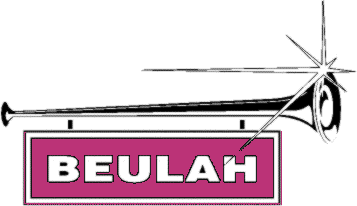Many music lovers miss the sound from vinyl pressings.
Many others have yet to discover how pleasant the sound can be.
Most of our albums are mastered from vinyl LP pressings and earlier
recordings (before 1953) from 78 rpm discs. It is our ability to
recreate, in the digital age, the sound from the disc era that many of
our customers find most enjoyable.
Unlike modern digital recordings tracks in our
albums do contain some distortion, and the occasional surface noises,
but for many listeners these "defects" are soon forgotten.
Our albums are available from many download sites.
We
are in the process of moving our recommended download site from iTunes
to
Qobuz where you can download or stream in higher quality, but at
the
same price as iTunes.
What the Critics Say
The following are reviews by Brian Wilson at Music
Web International
"Beecham’s way with Schubert was as magic as anything
that he did, even though – or because – he tinkered with the score in
several places.
"The 1953 sound is inevitably thin and not without a
trace of distortion but I’m willing to compromise in this case for the
sake of the wonderful performances, first released in the UK by Philips
in 1955 (ABL3001). Though Sony reissued the performances from the
master tape in 2003, the result reportedly made the orchestra sound
over-large by comparison with these LP transfers. "
"Goldmark’s Rustic Wedding Symphony may not be a
masterpiece but it contains some of the most beautiful music that I
know. I fell in love with it many years ago from the classic Beecham
recording on Philips GL5719, last seen on Sony SMK87780 but now
deleted. Having suggested that Beulah should reissue their single-track
releases on an album it’s no sooner said than done, together with two
other very enjoyable Beecham reissues. For the sheer enjoyment of
hearing Beecham work his customary magic in making a good second-rate
work sound almost first-rate I shall continue to turn to the Beulah
reissue.
I received it in lossless wav sound and I strongly recommend
downloading in lossless sound from Qobuz when it appears there, rather
than the watered-down mp3 which iTunes and Amazon still cling to. I’m
not a fan of dated recordings per se but Beulah have made this sound,
if anything, even better than on their earlier release. The Dvořák
Legend which opens the Beulah recording was recorded in stereo in 1959
and has come up sounding well, if a trifle top-heavy. The Golden
Spinning Wheel dates from three 78s released in 1949 and sounds,
inevitably, thinner, though very good for its age in this transfer. As
so often, it was Beecham’s recording which introduced the work to the
listening public. I very much enjoyed this reissue."
Reissue of the Month
(May
2016)
"If you had asked me to nominate classic recordings of the Ravel and
Honegger, these would have been among the front-runners alongside
Pierre Monteux (Ravel, various Decca couplings) and Herbert von Karajan
(Honegger, DG Originals). Add an enjoyable account of the Porgy and
Bess Symphonic Picture by its arranger and some authoritative Delius
from Sir Thomas Beecham in a collection running over the putative
80-minute limit and this must receive a clear recommendation,
especially as the Ansermet Honegger is otherwise available only in a
3-CD set and RCA’s own transfers of the Ravel seem to come and go, more
often the latter.
"The 78 recording of the Delius requires only a very
small degree of tolerance, far less than I expected: it sounds more
like an early LP transfer – indeed, it’s greatly superior to the
Fontana and Philips LPs on which it was released. I’m surprised to see
that Trevor Harvey praised the sound on
the Philips transfer because I recall quite the opposite: I’m sure that
I would have warmed to the North Country Sketches immediately if they
had sounded as good as this. I
listened to the Naxos transfer of the same recording as streamed
in lossless sound from their own classicsonlinehd.com and marginally
preferred the Beulah transfer as having more body.
"Beecham transposed the order of the two central
Sketches, Winter Landscape and Dance, presumably to suit the exigencies
of 78 sides: both Naxos and Beulah have reset them in the correct
order.
"There’s no connecting theme other than very fine
performances of
twentieth-century music – and the fact that two of the composers died
in 1937, by pure coincidence – but I’m certainly not complaining. "
I very much enjoyed this trip down memory lane, with
two
superb tenors, one in decent 1942 78 sound, the other in good stereo
from 1959 and 1960, and one who at his best was very good but developed
a negative reputation for those times when, at less than that best, he
just made a loud noise. Most of all I enjoyed Fritz Wunderlich, making
the two arias from Flotow sound just the right degree sentimental, and
very well supported by Gottlob Frick.
